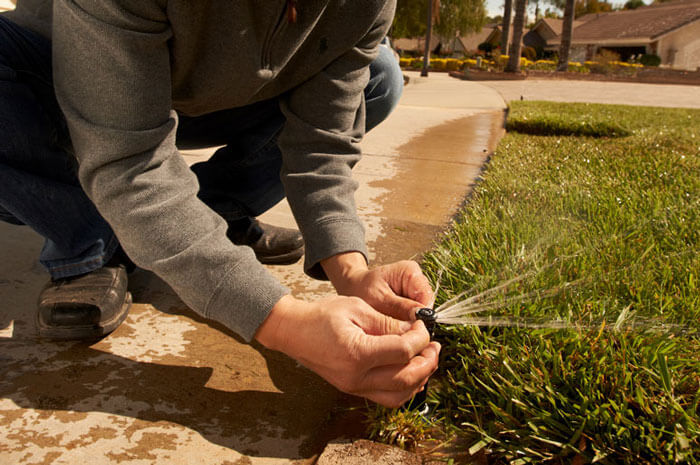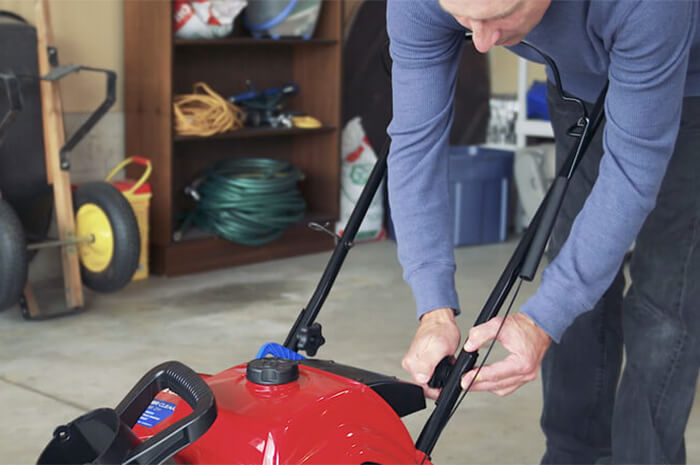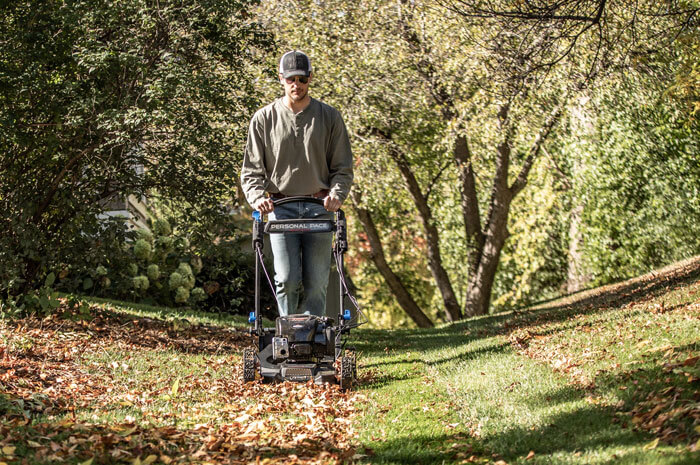
Lawn irrigation systems, or sprinkler systems, are designed to make watering your lawn a hands-off experience, but they still need some maintenance from time to time. While most routine sprinkler maintenance can be handled by homeowners, it’s best to turn to the experts for more complicated irrigation maintenance.
Let’s discuss how to keep your sprinkler system working efficiently year after year with both DIY and professional maintenance tips.
DIY Sprinkler System Maintenance
1. Inspect your System Monthly
While inspecting your sprinkler system, check for leaks, broken or clogged sprinkler heads, and other problems like damage from lawn equipment or improper winterization. Based on your inspection, clean clogged screens and drip irrigation filters as needed.
2. Adjust Sprinkler Heads
While examining your sprinkler heads, remove or correct any obstructions that prevent the sprinklers from distributing water evenly. Adjust sprinkler head positions and spray patterns to avoid watering sidewalks or structures, and be sure there’s enough clearance to avoid growing plants.
3. Check the Pressure
Be sure to routinely check the pressure, which can change over time and negatively affect system efficiency.
4. Install a Rain Shutoff Switch
These inexpensive sensors can be retrofitted to almost any irrigation system, helping to compensate for natural rainfall by turning off your system in rainy weather.
5. Consider “Smart” Technology
Sensor-based controllers evaluate your weather or soil moisture conditions, automatically adjusting the irrigation schedule to meet the specific needs of your lawn.
6. Consider Low Volume, Drip Irrigation for Gardens, Trees, and Shrubs
Drip (or trickle) irrigation, micro-spray jets, micro-sprinklers, and bubbler irrigation systems all apply a very small amount of water slowly and precisely. This works to minimize evaporation, runoff, and overspray.
Professional Sprinkler Maintenance
1. Look for Savings
Many municipalities offer rebates for select water-efficient products, saving you money on certain upgrades. To learn of any potential savings or programs available to you, consult with your local water provider prior to upgrading your system.
2. Inspect the System for Leaks
Leaks are huge water wasters. A good contractor will perform regular maintenance checks for leaks, broken or clogged spray heads, and other problems with your sprinkler system. While your contractor’s working with you, ask them to show you common irrigation problems to watch out for between visits.
3. Have Your System Audited
Hire a professional to conduct an irrigation audit and uniformity test. This will verify that areas are being watered evenly and appropriately, allowing for any necessary adjustments.
4. Winterize in Colder Climates
Before winter arrives, an irrigation contractor with specialized equipment can flush the water out of your sprinkler system. If left in sub-zero temperatures, any lingering water will freeze, cracking pipes, valves, and sprinklers.
Now You’re Ready for Sprinkler Maintenance
Now that you’ve read up on what sort of irrigation maintenance to do yourself, and what to leave to the professionals, you’re ready to take care of your system for years to come!
Have more questions about sprinkler systems? Visit our Help Center to learn more about common irrigation questions and concerns.



